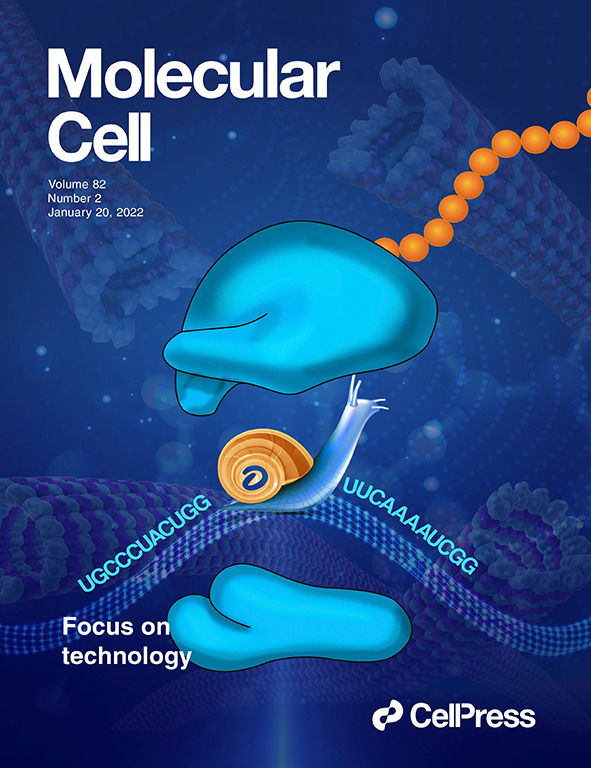Effects of phospholipase D1-inhibitory peptide on the growth and metastasis of gastric cancer cells
IF 6.5
3区 生物学
Q2 BIOCHEMISTRY & MOLECULAR BIOLOGY
引用次数: 0
Abstract
Phospholipase D1 (PLD1) contributes to cancer development and progression through its effects on cell proliferation, survival, invasion, metastasis, angiogenesis, drug resistance, and modulation of the tumor microenvironment. Its central role in these processes makes it a promising target for novel cancer treatments aimed at inhibiting its activity and disrupting the signaling pathways it regulates. In this study, we aimed to investigate the effect of PLD1 inhibition on gastric cancer cell growth using a novel peptide inhibitor, TAT-TVTSP. PLD1, which plays a role in cancer progression, catalyzes the conversion of phosphatidylcholine into choline and phosphatidic acid through hydrolysis. To effectively target PLD1 in cells, we engineered TAT-TVTSP by fusing a PLD1-inhibitory peptide (TVTSP) with a cell-penetrating peptide (TAT). We observed that TAT-TVTSP effectively inhibited PLD1 activity in AGS gastric cancer cells. Moreover, TAT-TVTSP significantly inhibited the mammalian target of the rapamycin signaling pathway, including the phosphorylation of key downstream targets such as S6K1, AKT, S473, glycogen synthase kinase-3b, and forkhead box O1. TAT-TVTSP did not induce cell death, but it triggered cell cycle arrest by activating p21 and p27 via AKT phosphorylation. Functional assays revealed that TAT-TVTSP significantly impaired the colony-forming ability of AGS cells, thus inhibiting cell proliferation. Transwell and wound-healing assays revealed that this peptide disrupted the cellular behaviors critical to cancer progression, such as migration and invasion. In vivo, TAT-TVTSP significantly reduced tumor growth in the xenograft model of gastric cancer without any toxicity. Overall, our results suggest that TAT-TVTSP is a novel therapeutic agent for PLD1-mediated cancers.
磷脂酶 D1 抑制肽对胃癌细胞生长和转移的影响
磷脂酶 D1 (PLD1) 通过对细胞增殖、存活、侵袭、转移、血管生成、耐药性和肿瘤微环境调控的影响,促进了癌症的发生和发展。它在这些过程中的核心作用使其成为新型癌症疗法的一个有希望的靶点,这些疗法旨在抑制其活性并破坏其调控的信号通路。在本研究中,我们使用一种新型多肽抑制剂 TAT-TVTSP 来研究 PLD1 抑制对胃癌细胞生长的影响。PLD1 催化磷脂酰胆碱通过水解转化为胆碱和磷脂酸,在癌症进展过程中发挥作用。为了有效靶向细胞中的 PLD1,我们将 PLD1 抑制肽(TVTSP)与细胞穿透肽(TAT)融合,设计出了 TAT-TVTSP。我们观察到,TAT-TVTSP 能有效抑制 AGS 胃癌细胞中 PLD1 的活性。此外,TAT-TVTSP 还能显著抑制雷帕霉素哺乳动物靶标信号通路,包括 S6K1、AKT、S473、糖原合酶激酶-3b 和叉头框 O1 等关键下游靶标的磷酸化。TAT-TVTSP 不会诱导细胞死亡,但它会通过 AKT 磷酸化激活 p21 和 p27,从而引发细胞周期停滞。功能测试显示,TAT-TVTSP 能显著削弱 AGS 细胞的集落形成能力,从而抑制细胞增殖。透孔试验和伤口愈合试验显示,这种多肽会破坏对癌症进展至关重要的细胞行为,如迁移和侵袭。在体内,TAT-TVTSP 能显著降低胃癌异种移植模型中的肿瘤生长,且无任何毒性。总之,我们的研究结果表明,TAT-TVTSP 是一种治疗 PLD1 介导的癌症的新型药物。
本文章由计算机程序翻译,如有差异,请以英文原文为准。
求助全文
约1分钟内获得全文
求助全文
来源期刊

Molecules and Cells
生物-生化与分子生物学
CiteScore
6.60
自引率
10.50%
发文量
83
审稿时长
2.3 months
期刊介绍:
Molecules and Cells is an international on-line open-access journal devoted to the advancement and dissemination of fundamental knowledge in molecular and cellular biology. It was launched in 1990 and ISO abbreviation is "Mol. Cells". Reports on a broad range of topics of general interest to molecular and cell biologists are published. It is published on the last day of each month by the Korean Society for Molecular and Cellular Biology.
 求助内容:
求助内容: 应助结果提醒方式:
应助结果提醒方式:


